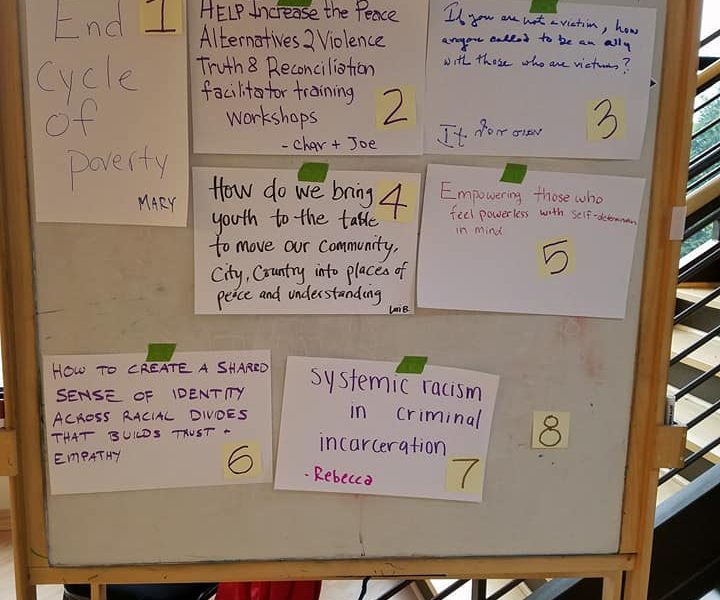Ari (Ballaban) Jun — In Conversation

Rethinking Racism
Do you remember the moment when you were first aware of your own heritage? How about the moment you realized others were aware of it?
I remember that moment clearly. I was young – no older than seven or eight – and I was sitting at the dining room table with my grandmother. We were talking about exotic trips we’d like to take and faraway places we’d like to see. She made a comment that she didn’t feel safe traveling at the time because she was Jewish. My immediate reaction was one of confusion; why should anyone have to be fearful simply because of their heritage? But I pushed past the discomfort and asked another question – one my childhood mind couldn’t understand.
“But, how would people know you’re Jewish?”
It was my grandmother’s answer that still sticks with me today. She responded, “Because I look Jewish.”
At that moment, I suddenly had a lot of questions, and even more feelings. It was in that moment that I learned how it felt for people to use something out of my control to judge me before I even had a chance to open my mouth. I didn’t have the term for it at the time, but in hindsight, I was internalizing the meaning of stereotype. I felt marginalized and vulnerable and angry.
I hadn’t thought about that day in a long time. Not until I was at a recent conference, listening to a presentation by Yavilah McCoy, an African-American Jew, who is the founder of a nonprofit organization providing educational resources for Jewish Diversity and Advocacy for Jews of Color in the United States. She spoke about her identity – about what it meant to be Black and Jewish, and she asked us to think about our own stories and our own identities. She asked the question I first asked at the beginning of this blog entry.
My answer was a Jewish one. Looking back, what I felt as an elementary schooler was just the tiniest, tiniest taste of stereotype. It was hardly comparable to what so many people in other minority communities deal with regularly.
Recently, we were reminded of how much work we have to do. According to an Urban League study released just a few weeks ago, to quote a May 2 article in the Cincinnati Enquirer, “Of 71 metropolitan areas analyzed, Cincinnati ranks 54th in black-white unemployment equality, and it is 60th of 71 in income equality.”
What is going on here? How can we fix this?
Last week, we were fortunate to partner with the YWCA, the Intercommunity Justice and Peace Center, and the Cincinnati Office of Human Relations on an event that brought people from all different backgrounds together, equipped with their own stories and energized to develop solutions for combating racism in our city. It was the latest forum in a “Rethinking Racism” initiative – a “Pro-Action Café” that followed a series of conversations over the last year or so. Through expert facilitation by Dan Joyner, we spent three hours brainstorming, sharing ideas, and developing actionable solutions to address race inequity in Cincinnati. Ideas ranged from working to end the cycle of poverty; to creating a shared sense of identity across racial divides to build trust and empathy; to involving more young people in conversations about how we can make our city a place of greater peace and understanding.
It was inspiring to watch people from many of our city’s diverse communities join together for this conversation at our own Mayerson JCC. As minorities, while our struggles have been separate and very different in many ways, our stories are intertwined and our pursuit for equality and justice for all people is rooted in that shared history, and in experiences that echo each other’s. The JCRC’s mission recognizes that when any of us are marginalized, we are all marginalized. We are committed to confronting and combating racism, bigotry, and hate in all of its forms here in Cincinnati, and last week’s program was an important step in that direction.

